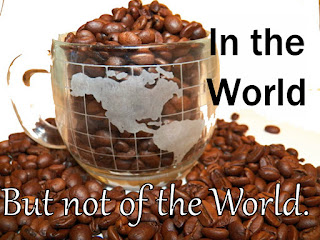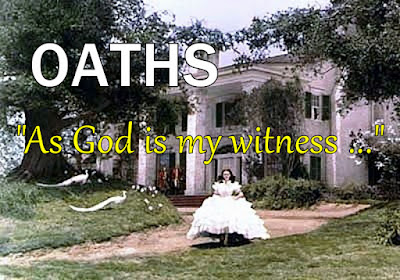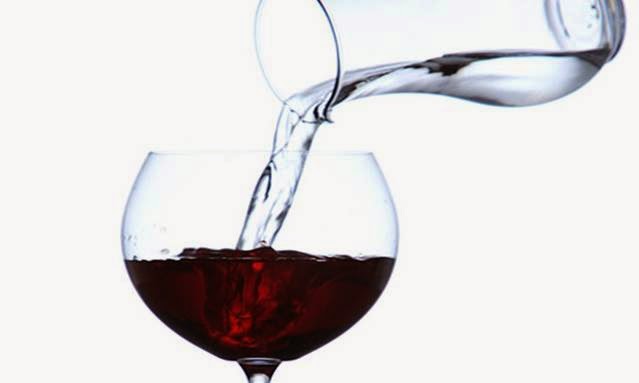WHOSE WE ARE, part five "When We Give"
This is part five of the series, "Whose We Are" based on Wesley's Covenant Prayer. Please see an earlier post for the complete prayer.
"I freely and heatily yield all things to your pleasure and disposal."
Philippians 1:20-30
Matthew 26:36-46
All things, LORD? Everything, including my will, my affections, my stuff, my personal power, my life?
While the others waited at the entrance to the Garden of Gethsemane on the Mount of Olives, Jesus took three of his most trusted disciples farther into the garden to stand watch and pray for him during this dark time of his greatest need. These three, Peter, James and John, had been with him since the beginning of his ministry. These were the three that Jesus took with him to the mount of the transfiguration.
Christ, both fully God and fully human, agonized and struggled with what it would mean for him to yield all things to God's pleasure and disposal, including his very life. Flat on his face in his distress, he plead with God, "Fathaer, if there's any chance this can be done without me dying, please let it be so." The humanity Jesus shares with us struggled with yielding to the Father's will.
As I know I do. Do you know the poem, "Foot Prints in the Sand?" As I look back along my faith journey on the sandy shore of my life, I note a familar pattern: three steps forward and two steps back. And there, where the prints are moving around in circles all over the place, that's where I was dancing around trying my very hardest to avoid God's call. Over there are some knee prints where I bargained, "I'll do anything else, but God, don't ask me to ..." Farther along the share, the foot prints disappear into the water. Not to worry, that's where I spent some "Jonah time" in the belly of a whale.
Sound familiar?
Three times, Christ cried out to his Father, and three times Jesus said, "Let your will be done, not mine." He yielded his life to God to fulfill God's purposes and to make salvation available to all human kind and for the redemption of all creation.
As Paul neared the end of his life, he wrote in a letter to the Christians in Philippi that "For me, living is Christ and dying is gain." (Phil. 1:21). Life, for Paul was about fellowship with Christ and yielding his life to Christ to serve others. Death meant that his relationship with Christ would be nearer and fuller.
Scripture speaks of death -- physical death, spiritual death, and also dying in Christ. The latter is the yielding of ourselves to Christ and putting to death the desires of the flesh, like the desire to have and possess, the desire to live our lives our way, the desire to put ourselves above others in judgment, and the desire to be "me firsters" or "me only-ers."
It is dying to self. As I look back over that sandy beach, I see small crosses marking those times when I grew in faith, experienced God's grace, and moved forward in the journey.
It is through that dying of self and yielding our lives to Christ that we experience a nearer, fuller fellowhip with him, not just in the life to come, but in the here and now. As hard as that is to do, and as hard as we struggle with this, we have Jesus with us. Jesus, fully God and fully human, has experienced this same struggle and in his merciful compassion, is there in the midst of the struggle, ready with God's empowering grace, which makes every commandment a promise.
What God has commanded, God promises to provide whatever it takes to make it so. God's grace is sufficient when our spirits are willing but our flesh is weak, but we have to be willing, even willing to be willing, to take that first step forward to participate with grace. We have to be willing, even willing to be willing to yield all things to God, and to plant, with Christ, that cross in the sand.
When we give, we are to follow the example of Christ, and yeld all things -- our will, our affections, our stuff, our personal power, and yes, our lives.
"I freely and heatily yield all things to your pleasure and disposal."
Philippians 1:20-30
Matthew 26:36-46
All things, LORD? Everything, including my will, my affections, my stuff, my personal power, my life?
While the others waited at the entrance to the Garden of Gethsemane on the Mount of Olives, Jesus took three of his most trusted disciples farther into the garden to stand watch and pray for him during this dark time of his greatest need. These three, Peter, James and John, had been with him since the beginning of his ministry. These were the three that Jesus took with him to the mount of the transfiguration.
Christ, both fully God and fully human, agonized and struggled with what it would mean for him to yield all things to God's pleasure and disposal, including his very life. Flat on his face in his distress, he plead with God, "Fathaer, if there's any chance this can be done without me dying, please let it be so." The humanity Jesus shares with us struggled with yielding to the Father's will.
As I know I do. Do you know the poem, "Foot Prints in the Sand?" As I look back along my faith journey on the sandy shore of my life, I note a familar pattern: three steps forward and two steps back. And there, where the prints are moving around in circles all over the place, that's where I was dancing around trying my very hardest to avoid God's call. Over there are some knee prints where I bargained, "I'll do anything else, but God, don't ask me to ..." Farther along the share, the foot prints disappear into the water. Not to worry, that's where I spent some "Jonah time" in the belly of a whale.
Sound familiar?
Three times, Christ cried out to his Father, and three times Jesus said, "Let your will be done, not mine." He yielded his life to God to fulfill God's purposes and to make salvation available to all human kind and for the redemption of all creation.
As Paul neared the end of his life, he wrote in a letter to the Christians in Philippi that "For me, living is Christ and dying is gain." (Phil. 1:21). Life, for Paul was about fellowship with Christ and yielding his life to Christ to serve others. Death meant that his relationship with Christ would be nearer and fuller.
Scripture speaks of death -- physical death, spiritual death, and also dying in Christ. The latter is the yielding of ourselves to Christ and putting to death the desires of the flesh, like the desire to have and possess, the desire to live our lives our way, the desire to put ourselves above others in judgment, and the desire to be "me firsters" or "me only-ers."
It is dying to self. As I look back over that sandy beach, I see small crosses marking those times when I grew in faith, experienced God's grace, and moved forward in the journey.
It is through that dying of self and yielding our lives to Christ that we experience a nearer, fuller fellowhip with him, not just in the life to come, but in the here and now. As hard as that is to do, and as hard as we struggle with this, we have Jesus with us. Jesus, fully God and fully human, has experienced this same struggle and in his merciful compassion, is there in the midst of the struggle, ready with God's empowering grace, which makes every commandment a promise.
What God has commanded, God promises to provide whatever it takes to make it so. God's grace is sufficient when our spirits are willing but our flesh is weak, but we have to be willing, even willing to be willing, to take that first step forward to participate with grace. We have to be willing, even willing to be willing to yield all things to God, and to plant, with Christ, that cross in the sand.
When we give, we are to follow the example of Christ, and yeld all things -- our will, our affections, our stuff, our personal power, and yes, our lives.



Comments
Post a Comment